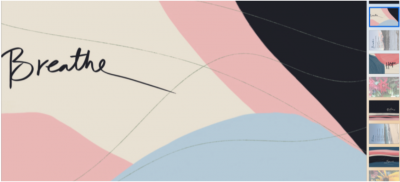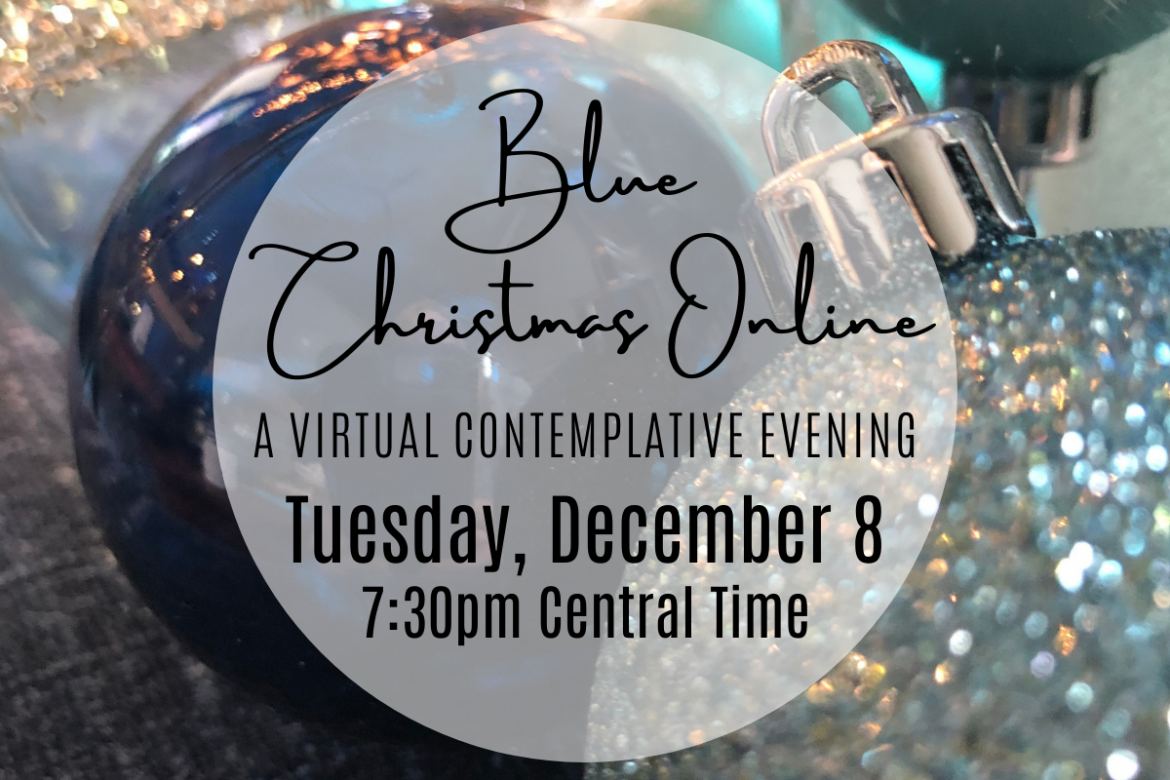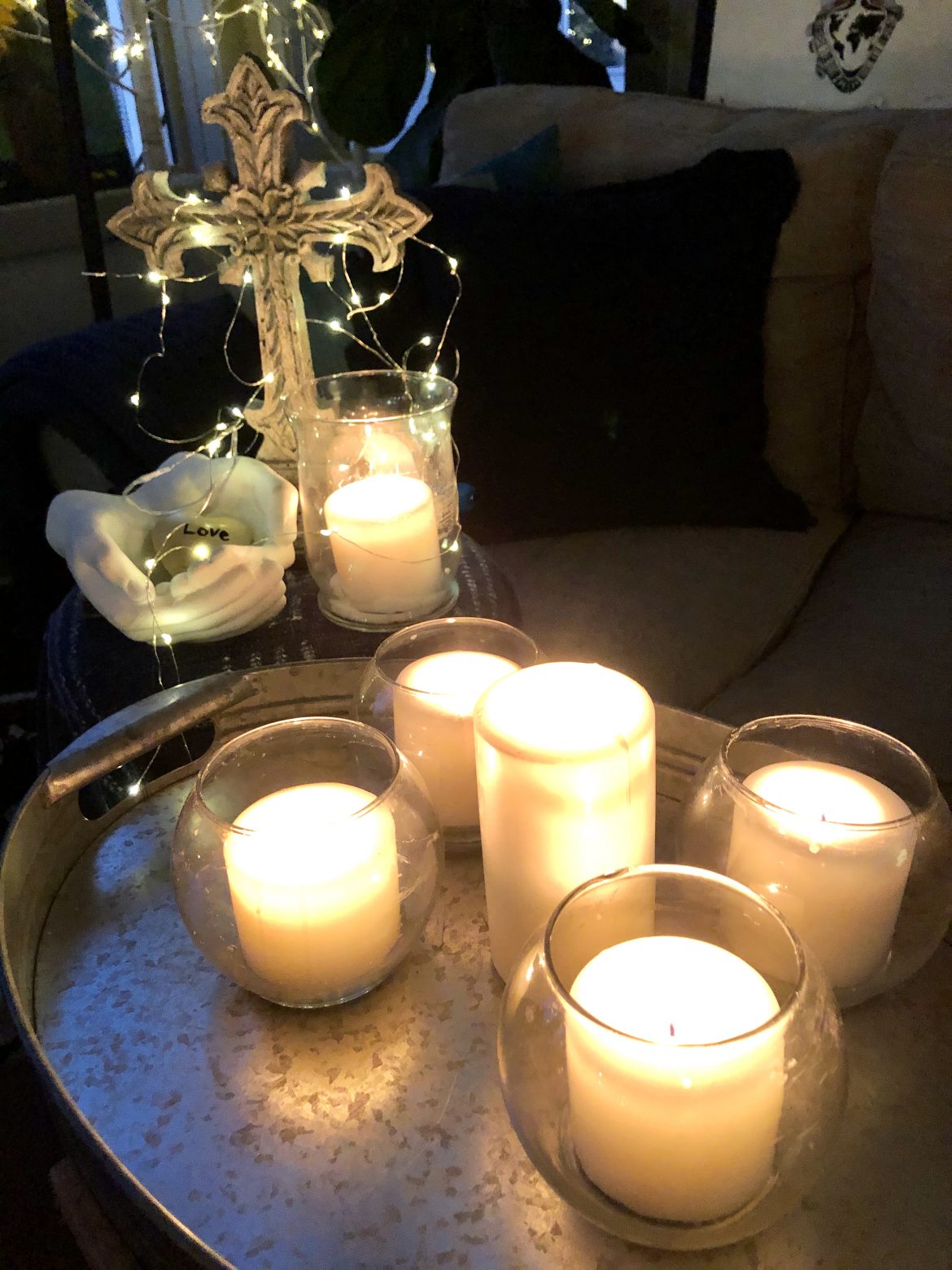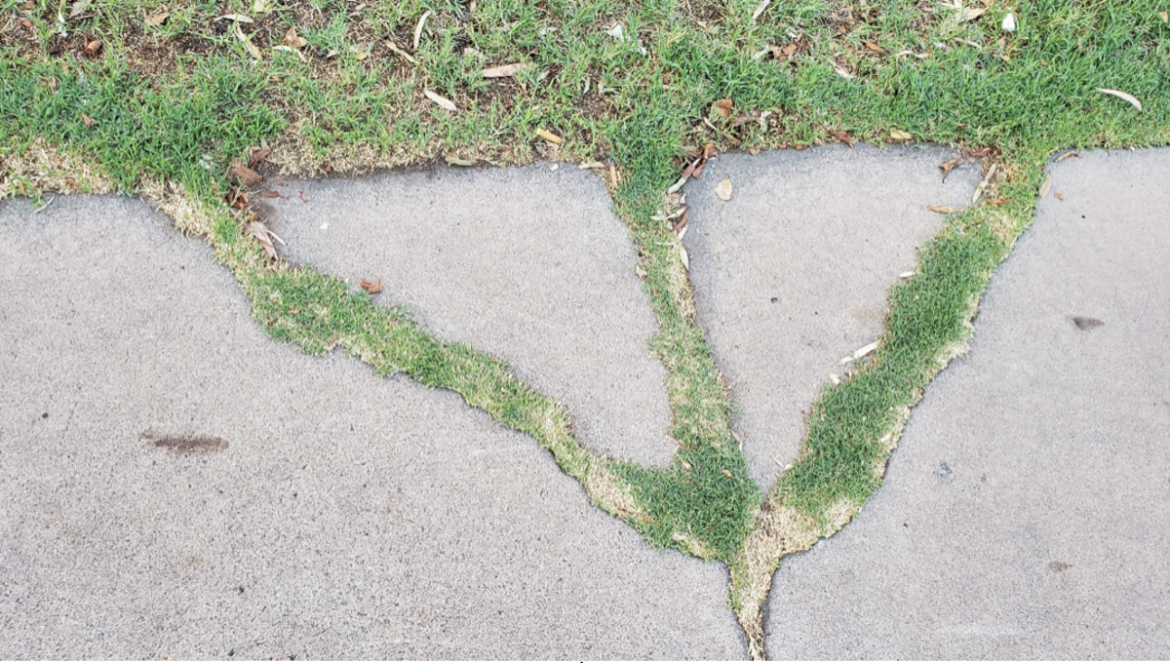by Sue Duby
March brought an impromptu drive to Texas to visit “like family” friends. Celebrating Chuck’s birthday. Sharing deep heart moments. Evening strolls in the cool night air. Morning chats in pajamas around the breakfast table. And then. . . it all changed.
“Did you see the news this morning? What do you think? Is it nothing or really a big deal?”. My adrenalin started pumping a bit, anxiety often too ready to rear its head. “Looks like France may be closing soon. Italy’s cases are bad. Not sure what’s happening around here…”. Our vocabulary suddenly increased by a single word… “Corona” (later morphing to “Covid”). And the journey began.
Seven months later, here we are. Still filtering most decisions through that crazy “C” word. Cancelling plans. Wrestling to accept the now, while longing for the “before”. Trying to keep dreaming, yet knowing holding everything loosely works best. Laying down expectations, while purposing to choose hope, joy and peace. Daring to blurt out “I’m so over this!!”, while hearing His gentle whisper, “I am here. I know.”
Enjoying some porch-sitting quiet in the crisp morning Fall air, I sighed with an “OK… here we go for another day… and ‘it’s’ still here!”. Immediately, I sensed a nudge to reframe my thinking. Do I want to live with a “Covid filter” each day or Your filter, Lord? I know the second is so much better. . . brings peace and freedom and even opportunity for fresh direction. Choosing His “filter” means a work of tweaking my thinking, asking for renewed perspective and fresh creative ideas. Work, but a process with promised satisfaction.
Not “what I can’t do”, but “what I can do!”. Walking nearby trails in clean air and sunshine. Trading morning gym classes for yoga mats and online workouts on the “just big enough” bedroom floor.
Not “what’s been taken away”, but “what’s been given”. We can’t “get up and go” like before. We can walk the neighborhood often. On that journey over past months, we’ve met so many new neighbors, now friends. Chats have gone past the “How are you?” to family histories, jobs, teenagers, health and laughter. Nearly 20 and counting!
Not “how long Lord???!!”, but “Lord, what do you have today?”. Working that “being present” muscle overtime. Learning deeper contentment in the day unfolding. Awareness growing in the seeming little matters of the day that actually hold deep significance.
Not “I’m tired of feeling trapped, anxious, frustrated, ________(fill in your own list),. . . ., but “Lord, show me where you want me to grow, what you want to uncover, where I need to let go”.
Not “what if ___________??”, but “Lord, I am trusting you for ________”.
Not “I can’t believe THEY are (saying, thinking, doing) __________”, but “How do You want ME to walk in body, mind and spirit today, Lord?”
Not “stop everything you did before”, but “ask Me for creative ways to walk your days”. I treasure time with friends and need it for encouragement, challenge and fun. Watching my favorite coffee shops shut down and missing my girlfriend dates, I finally woke up and began inviting them to join me on our back porch (chairs distanced, of course!). Now conversations stretch from the previous “1 hour and gotta go!” to even a record breaking 4-hour delight! In the quiet and privacy, sharing goes deeper. Wondering if I need to get a heater to keep those porch dates going through the Winter!
Not “grumbling”, but “gratitude”. Purposing to have “I’m so thankful for ____” woven through my whole day.
My marching orders are clear. I may still feel “shut down” in various measures each day, with some not-so-great emotions along the way. But. . . I know He has fresh windows to open if I pay attention, listen, wait and trust His unfolding ways.
****************
This is the day which the Lord has made; Let us rejoice and be glad in it.
Psalm 118:24 NASB
For I know the plans that I have for you,’ declares the Lord, ‘plans for welfare and not for calamity to give you a future and a hope. Jeremiah 29:11 NASB
Let the morning bring me word of your unfailing love, for I have put my trust in you. Show me the way I should go, for to you I entrust my life. Psalm 143:8
by Christine Sine
Welcome to Meditation Monday. Today I am going to try something a little different.
Like many of us, I am constantly wondering how to maintain my equilibrium in the midst of the very trying times in which we find ourselves. I am frequently looking for practices that help me relax and refresh myself. I am particularly inspired by those that draw me into the presence of God and help me to feel the warm embrace of that presence.
I have looked at a lot of different mindfulness practices over the last few weeks and there are so many out there that it is hard to know where to start. Even my Fitbit has suggestions and I decided last week to give their 3 mintute breathing meditation a go.
It started well – take some deep, slow breaths in and out breathing in through your nose and out through your mouth, it encouraged. Great, I thought. I like this. Then it encouraged, “feel your breath going deep into your stomach.” Into my stomach – no way. All that does is produce wind and belching. I want my breath to go deep into my lungs and out through my bloodstream to my extremities. So I decided it was time I created my own breathing prayer meditations – complete with prayers and scriptures to help ground me in the places that I feel the most need to be grounded in. It is a little more than 3 minutes (like 15!) but I personally have found this to be the perfect length of time for a practice like this. Enjoy!
Unfortunately there is no Taize style service from St Andrews this week as there have been technical problems with the service. However I have had a number enquiries about the musicians Kester Limner and Andy Myers. Unfortunately they do not have an album available but here is a link to the St Andrews playlist of their music – there is quite a collection so click through to YouTube to see the whole collection. Enjoy.
Check out the increasing number of resources that we have available for Blue Christmas and Advent. Below you will find Blue Christmas Resources, a Blue Christmas Online Event, and our Advent Retreat Online experience!
Blue Christmas Resources
- Acknowledging Our Pain – Resources List for Blue Christmas: Updated for 2020
- The Text This Week – Blue Christmas
- Litany for a Blue Christmas by Morgan Schmidt
- ‘I follow light’ – Blue Christmas by Kate Kennington Steer
- Blue Christmas 2017 by Kate Kennington Steer
Blue Christmas Online
A Virtual Contemplative Evening on ZOOM, free and open to all
Reflection, Music, Art, Community, Hope
2020 has been a hard, tiring year. We’re weary. The world is weary. An eclectic group of curators across the US with a passion for sacred spaces online and in real life have pulled together an interactive, experiential, contemplative evening for anyone who’s feeling weary this season and wants a space to gather some hope.
Come alone.
Come with your housemates.
Invite your friends, small group, of faith community members to join in from their living room but share in the experience together.
Registration is required to provide the link and details. We’ll be recording it if you can’t attend that night but want to participate later.
Facilitated by: Lilly Lewin and Freerange Worship
Worship, Kathy Escobar and The Refuge, Christine Sine and Godspace Light, Joanna Cummings and A Sacred Home.
Special music with Heatherlyn, Kate Hurley, Archie Davis, and more.
Tuesday, December 8 at 7:30pm Central Time
Click here for your time zone calculator.
REGISTER HERE
Forget your perfect offering
There is a crack, a crack in everything (there is a crack in everything)
That’s how the light gets in
~ Leonard Cohen
What you will need:
Coming Soon! Lean Towards the Light Advent Retreat Online
Hopefully by next week!
Email us if you are interested in receiving a notification when this retreat becomes available!
We are in the final days of the 2020 election here in the States, and as I type this post, the last presidential debate is happening less than three miles from my house here in Nashville. Regardless of your political party, and even if you live somewhere else in the world, it’s been a long haul in terms of 2020. We all need ways to process the exhaustion of this year. The pandemic, losses of rhythm, the loss of hugs, closeness, the ease of life we once took so much for granted. What do we do with all of this?
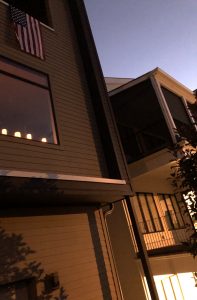
Put candles in the window
LIGHT A CANDLE and/or PUT CANDLES IN THE WINDOW and PRAY FOR PEACE
One of the neighbors who lives near Belmont University where the debate is being held, had a great idea. She suggested that everyone in the neighborhood put candles in their windows tonight and pray for peace before the debate started. I got out my collection of battery candles that I usually use for Sacred Space installations and put them in all my windows as a tangible reminder of our need for the Light of Peace to shine brightly in our world. What if we all lit a candle each night in the days ahead to pray for peace and “lean towards the light” as Christine’s Advent Book invites us to do? What if we all encouraged our neighbors to put candles in their windows and pray for peace or “hold space for peace” each evening at a certain time?
WEAR A BAND AID… Pray for Healing for Our Nation and Our World
One of our prayer practices this past Sunday night at thinplaceNASHVILLE was praying with 2 Band-Aid Bandages. We were looking at the calling of Matthew. Where Jesus calls this tax collector to come follow him and then ends up at Matthew’s house for dinner with all his tax collector friends. The religious leaders, the Pharisees, grumbled and asked why Jesus was eating with the riffraff. Jesus said that he came for the sick not the well.
10-11 Later when Jesus was eating supper at Matthew’s house with his close followers, a lot of disreputable characters came and joined them. When the Pharisees saw him keeping this kind of company, they had a fit, and lit into Jesus’ followers. “What kind of example is this from your Teacher, acting cozy with crooks and riffraff?”
12-13 Jesus, overhearing, shot back, “Who needs a doctor: the healthy or the sick? Go figure out what this Scripture means: ‘I’m after mercy, not religion.’ I’m here to invite outsiders, not coddle insiders.” Matthew 9:10-13 (The Message)
We all put on a Band-Aid bandage and touched the bandage while we prayed for healing for our country and our world. We also prayed for people in our lives who were in need of healing. The second Band-Aid bandage, we put somewhere we’d see it on a daily basis, since the original one we put on would probably fall off soon. One friend put the bandage on the back of her phone so she’d see it and feel it each time she used her phone this week and remember to pray for healing for our country and the world.
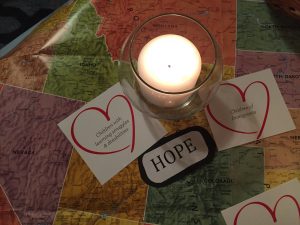
Light a Candle and Pray for Peace and Hope
FIND WAYS TO WORSHIP:
If you are a regular freerangefriday reader, you know that I’m all about worship! Worshiping with all our senses! Getting outside, being with God in Nature. Worshiping God through art, creating it or looking at it. Worshiping through silence and through song too. Listen to a beautiful song by my friend, Maggie Dawn.
Find a song that brings you hope and gives you peace. Listen to it daily to help you pray for our nation and the world.
Find some resources to help you pray! We have an abundance of Prayer Resources here at GodspaceLight!
And as chief curator at Freerangeworship, we provide resources and coaching to help people engage God with all their senses and learn to worship beyond singing. We just launched a new website freerangeworship.com this week and want to invite you to pray with us in the Digital Sanctuary. Some of these stations you may have seen here in my freerangefriday posts. We wanted to show how we can worship in different ways even though we cannot meet together. We have lots of resources for Advent and Christmas that are prayer station based and a family Advent Box created by Joanna Cummings of A Sacred Home. We are putting together two ways to process the election for churches and small groups and one using Prayer Hearts that is perfect for individuals too. Those Healing and Election Resources will be available to download next week so please check the website then.
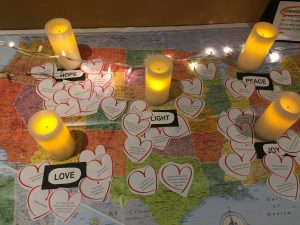
PRAYING with Prayer Hearts
Finally, I want to invite you to a workshop that freerangeworship is hosting so you can experience worship beyond singing and learn ways to pray and worship on line using all your senses. It’s a free workshop on November 6th at 2pm central time via zoom. Please feel free to pass this invitation along to friend who might be interested.
FreerangeWorship Workshop: Creating and Experiencing Sacred Space Worship in Unfamiliar Times
Description
We end our thinplaceNASHVILLE gatherings with this prayer. It has helped me a lot during 2020. I have found myself praying it when I don’t know what else to pray.
Lord!
Give us grace today to love as you love. Help us to love with extravagance.
Give us hope today for ourselves and others. Heal our hurts and our hearts today,
So we can serve and help those around us. Help us to know that you are enough.
And help us live today and everyday in thankfulness. For all you’ve done and for all you bless us with.
In the Name of the Father, the Son, and the Holy Spirit. AMEN.
May you find peace and healing this weekend.
©lillylewin and freerangeworship.com
by June Friesen
2 Corinthians 4:7-12 tells us that if you only look at us, you might well miss the brightness. We carry this precious Message around in the unadorned clay pots of our ordinary lives. That’s to prevent anyone from confusing God’s incomparable power with us. As it is, there’s not much chance of that. You know for yourselves that we’re not much to look at. We’ve been surrounded and battered by troubles, but we’re not demoralized; we’re not sure what to do, but we know that God knows what to do; we’ve been spiritually terrorized, but God hasn’t left our side; we’ve been thrown down, but we haven’t broken. What they did to Jesus, they do to us—trial and torture, mockery and murder; what Jesus did among them, he does in us—he lives! Our lives are at constant risk for Jesus’ sake, which makes Jesus’ life all the more evident in us. While we’re going through the worst, you’re getting in on the best!
Opportunity in Brokenness
Not in one’s own body or another’s body
Physically, mentally, emotionally and/or spiritually-
We all desire and aim for perfection and might I add sometimes demand it.
Life does not always and might I say almost never allows for perfection,
We may attempt to produce it in our own life at times
Usually to make us hopefully feel good-
Yet often it just leads to more frustration, emptiness and possibly an attitude of just giving up.
Brokenness – it often produces cracks –
Cracks are those places where what is real can leak/sneak out –
Those things that are not always beautiful, shiny and welcomed by others –
Those things that well up from somewhere within breaking one’s beautiful, peaceful being.
Opportunity can result from brokenness and cracks I have been told –
Those places of hurt, disillusion, disappointment, and confusion –
Where things said and things done just do not seem to match up
And you say there is opportunity for life to grow through the cracks.
Allowing others to reach out and take one’s hand, offer a word of hope,
Encourage one to keep going….even when the cracks seem so foreboding.
Brokenness – cracks – frustration – just plain old tiredness
Are a reality for some if not all of us at times,
And when times bring frustration upon frustration
And pain upon pain,
It all stacks up until it begins to make one unsteady and wobbly –
And all of a sudden it may even topple over and maybe even come crashing down!
Yes, brokenness, pain, frustration – they are a reality for sure,
God you are above and over me as well as everyone and all things –
Please give me wisdom to see the possibility of the life that you want to grow through my cracks –
And even when the cracks are rather huge, deep and even downright ugly –
May it be that I allow Your Spirit to grow right through them
Offering life and healing to everyone who is around me.
To You O God be the glory and honor and praise now and forever Amen and amen.
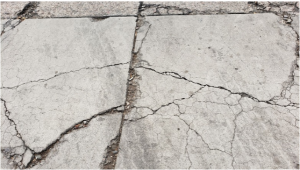
photo by June Friesen
Is love a rule?
It is said that it is the one rule
containing all the others.
That it’s something we’re to put on,
rather than follow
in a straight line.
For the discerning
love is not a choice,
if life is to be the outcome.
More often love looks like a hard path,
with twists and turns.
It is seldom clear.
And love put on
is sometimes a hair shirt –
an irritant,
and an imposition.
And how do we know
who it is we are following.
Perhaps it’s that we’re not thinking
so much of ourselves,
or balancing on a rigid line.
Love is so encompassing
as to grow in circles.
Within which we,
by loving,
find ourselves.
Ana Lisa de Jong
Living Tree Poetry
August 2020
For more poems for Ana Lisa de Jong, check out the free downloads available in our store:
As an Amazon Associate, I receive a small amount for purchases made through appropriate links.
Thank you for supporting Godspace in this way.
When referencing or quoting Godspace Light, please be sure to include the Author (Christine Sine unless otherwise noted), the Title of the article or resource, the Source link where appropriate, and ©Godspacelight.com. Thank you!


